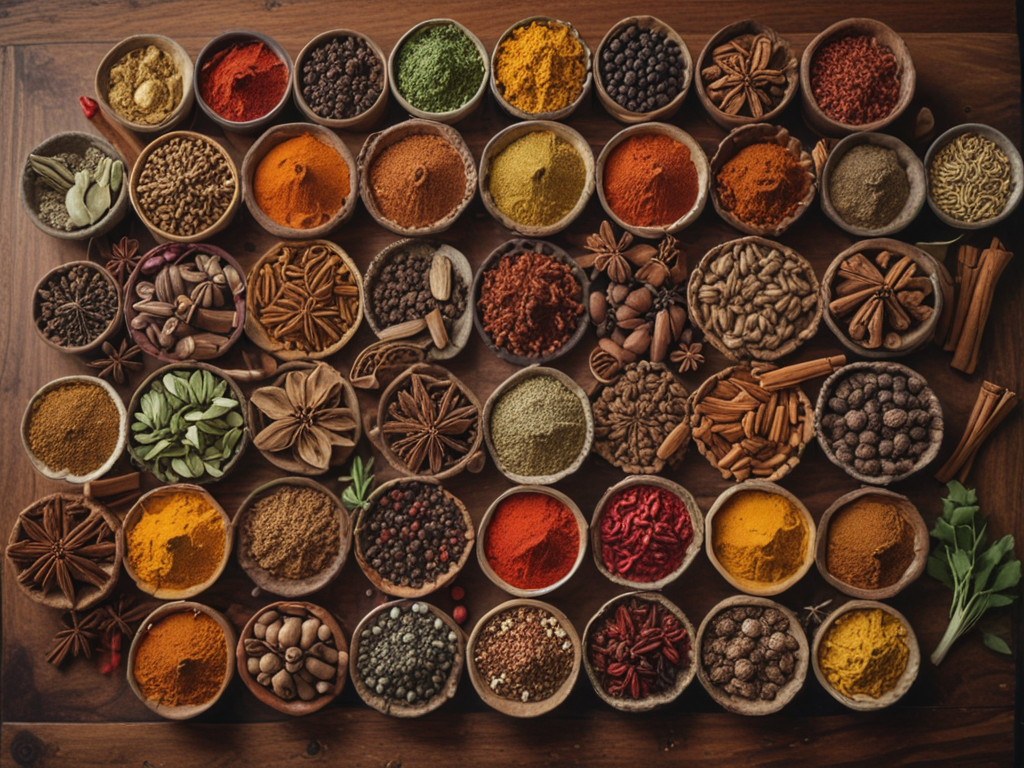
One of the most intriguing aspects of the spice trade is that at one point in history, spices were worth their weight in gold, and in some cases, even more. The allure of these exotic flavors not only sparked voyages of discovery but also led to fierce competition among nations seeking to control the lucrative spice routes. Understanding the profound impact spices had on shaping our world requires a closer look at the historical, economic, and cultural dimensions of this trade.
Origins of the Spice Trade
The spice trade originated centuries ago as merchants sought out exotic flavors and aromas to enhance and preserve food. This early pursuit laid the foundation for what would become a global phenomenon, shaping economies and fostering cultural exchange across continents. The economic significance of the spice trade cannot be understated, as it fueled exploration, drove innovation, and established trade routes that connected distant lands. The exchange of spices not only enriched palates but also enriched societies by introducing new culinary techniques and ingredients.
The ancient origins of the spice trade continue to exert modern influences on our world today. Spices have become more than just commodities; they are symbols of diversity, connection, and the enduring legacy of human curiosity. The spice trade has transcended its humble beginnings to become a reflection of our shared history and a affirmation to the power of trade in shaping our collective identity. From the bustling markets of ancient civilizations to the spice aisles of modern supermarkets, the journey of spices continues to weave a rich tapestry of cultural exchange and economic interdependence.
Key Spices and Their Impact
Exploring the historical significance of key spices reveals their profound impact on global trade and cultural exchange. Spices such as cinnamon, pepper, and cloves not only revolutionized culinary practices but also played a vital role in shaping economies and societies worldwide.
These spices were not merely used for flavoring dishes but were also valued for their medicinal properties, demonstrating their dual importance in culinary innovation and health benefits. For instance, the antibacterial properties of spices like turmeric and ginger have been recognized for centuries in traditional medicine practices.
Moreover, the cultural significance of key spices cannot be understated. Spices were often associated with prestige and luxury, leading to their use in religious ceremonies, social gatherings, and even as currency. This cultural value attached to spices fueled their demand, driving economic impact through the establishment of extensive trade networks and the rise of powerful empires.
Spice Routes and Trade Networks
Traversing the intricate web of ancient spice routes and trade networks reveals the interconnectedness of civilizations and the pivotal role spices played in fostering global commerce. The Silk Road, known for connecting the East and West, was an important trade route for spices like pepper, cinnamon, and ginger. This historical network facilitated cultural exchange and economic growth across regions. Additionally, maritime routes linking the Middle East and Southeast Asia played an essential role in the spice trade, especially for coveted spices such as cloves, nutmeg, and cardamom.
| Silk Road | Maritime Routes |
|---|---|
| Connected East and West | Linked Middle East and Southeast Asia |
| Facilitated cultural exchange | Essential for trade of cloves, nutmeg, and cardamom |
| Boosted economic growth | Key route for spice transportation |
The convergence of these routes not only led to the creation of vast trading networks but also influenced the development of civilizations along the way. The exchange of spices not only added flavor to dishes but also enriched societies with new ideas and technologies, shaping our world in profound ways.
Influence on Exploration and Discoveries
The Spice Trade greatly influenced the age of exploration by propelling explorers to seek new trade routes and discover unknown lands. Through the quest for valuable spices, navigators like Vasco da Gama and Christopher Columbus set off on voyages that led to the discovery of new territories and the establishment of global trade networks. The allure of spices not only shaped trade routes but also spurred pivotal geographical discoveries that reshaped the course of history.
Exploration Impacts on Trade
My journey into the annals of history revealed the profound impact of exploration on the spice trade, reshaping economies and cultures across the globe. Exploration dynamics played a pivotal role in expanding trade networks and opening up new markets for exotic spices. The discovery of efficient trade routes facilitated the transportation of spices from their places of origin to distant lands, creating a global demand for these coveted goods. As explorers navigated uncharted waters and ventured into unknown territories, they encountered diverse civilizations and established diplomatic relations that further fueled the spice trade. The interplay between exploration and trade not only revolutionized the economic landscape but also fostered cultural exchanges that enriched societies worldwide.
- Exploration dynamics shaped the course of trade routes.
- New trade routes opened up markets for spices.
- Interactions during exploration led to cultural exchanges.
Discoveries Through Spice Routes
Through the intricate web of spice routes, discoveries of new lands and cultures were catalyzed, profoundly influencing the course of exploration and shaping historical narratives. Culinary innovations and geographical connections were fostered as spices like cinnamon and pepper led explorers to distant lands, sparking a culinary revolution across continents. Cultural exchanges flourished as diverse societies interacted, sharing knowledge and traditions along the spice routes. These interactions not only enriched cuisines but also deepened cultural understandings worldwide. The economic impacts were immense, with spice trade routes paving the way for global commerce and the rise of powerful trading empires. The exchange of goods along these routes fueled economic growth and established lasting trade networks, forever altering the course of history.
| Culinary Innovations | Geographical Connections |
|---|---|
| Spices revolutionized cooking techniques | Spice routes connected East and West |
| Diverse cuisines emerged | Explorers discovered new lands |
| Fusion of flavors enriched culinary traditions | Trade networks extended across continents |
| Global food culture evolved | Geographical knowledge expanded |
Globalization and Cultural Exchange
Globalization and Cultural Exchange have been pivotal in shaping the interconnectedness of societies throughout history. These phenomena have not only facilitated the spread of goods and ideas but have also led to significant cultural fusion and economic impact. Here are three key points to ponder:
-
Cultural Fusion: Globalization and Cultural Exchange have enabled the blending of diverse cultural practices, beliefs, and traditions. Through the exchange of spices along trade routes, different societies interacted, shared knowledge, and integrated aspects of each other’s cultures into their own. This cultural fusion enriched societies, fostering creativity and tolerance.
-
Economic Impact: The interconnectedness brought about by globalization and cultural exchange through the spice trade had a profound economic impact. It stimulated economic growth, created new markets, and fueled innovation. The demand for spices drove exploration, leading to the discovery of new lands and the establishment of trade networks that transformed economies.
-
Social Transformation: Globalization and Cultural Exchange not only influenced economies but also brought about social transformations. The exchange of spices encouraged people to explore beyond their borders, fostering a sense of curiosity and openness to different ways of life. This social interaction laid the foundation for a more interconnected and understanding world.
Spice Wars and Power Struggles
The Spice Wars and Power Struggles of history have been characterized by intense competition and strategic maneuvering among nations vying for control over lucrative spice trade routes. Political intrigue often played a significant role in these conflicts, as countries sought to gain economic dominance through the monopolization of key spices like cinnamon, pepper, and cloves. These power struggles were not merely about the spices themselves but also about the wealth and influence that came with controlling the spice trade.
Throughout history, empires rose and fell based on their ability to secure valuable spice routes and maintain a stronghold over these lucrative commodities. The quest for economic dominance drove nations to engage in both overt conflicts and subtle diplomatic maneuvers to outmaneuver their rivals. The Spice Wars reshaped political landscapes, forged alliances, and sometimes led to betrayals, all in the pursuit of gaining an upper hand in the spice trade. Ultimately, these struggles illustrate the immense power that spices held in shaping the geopolitical dynamics of the past.
Legacy of the Spice Trade
Having left an indelible mark on commerce and cultural exchange, the spice trade’s legacy endures as proof of the enduring impact of trade routes on global history. The economic impact of the spice trade reverberates through time, shaping the world as current society today. This legacy is evident in several key ways:
-
Cultural Exchange: The spice trade facilitated cultural exchange on an unprecedented scale, bringing together people from distant lands and fostering a rich tapestry of traditions, languages, and beliefs. The mingling of cultures through the spice trade led to the diffusion of knowledge, art, and technology across continents.
-
Globalization: The spice trade played a pivotal role in kickstarting the process of globalization, paving the way for interconnected economies and societies. The exchange of goods and ideas spurred by the spice trade laid the groundwork for the interconnected world the present generation live in currently.
-
Legacy of Innovation: The economic prosperity generated by the spice trade fueled innovation in navigation, shipbuilding, and finance, leaving a lasting legacy of advancement that continues to shape modern trade practices. The quest for spices drove explorers to chart new territories, leading to discoveries that expanded the known world and forever altered the course of history.











